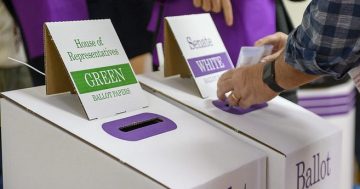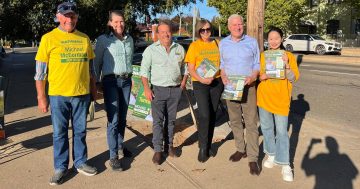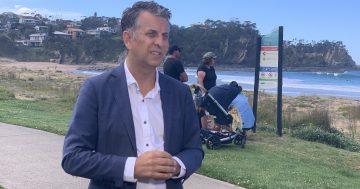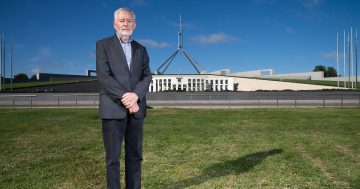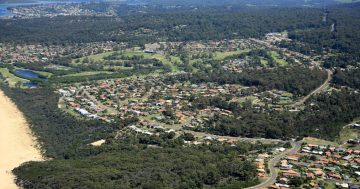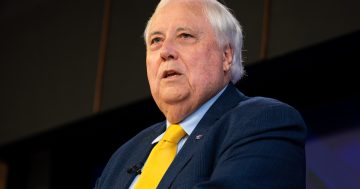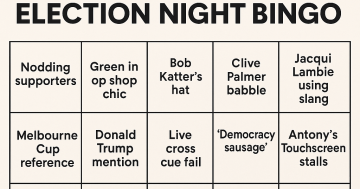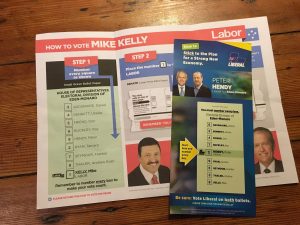
I love preferential voting.
In a similar way to how I loved John Farnham through those “Whisperering Jack” and “Age of Reason” years.
It’s true, those pieces of vinyl are collecting dust these days but not my passion for numbering one to nine.
As July 2 approaches I skipped with glee as I discovered the “How to Vote” cards of the two major parties in my Eden-Monaro letterbox.
Who have they put at number two and who have they put last?
I was busting to know.
In my mind, both ends of that equation says a lot about the candidate at number one.
Political commentator, Dr Anthony Ashbolt from the University of Wollongong (UoW) agrees.
“It does say something about the ideology of the party,” he says.
The word “preference” and how we use it in the context of an election suggests as much.
The Australian Electoral Commission says voters are required to place a number one against the candidate of their choice, which is known as your first preference.
Voters are then required to place the numbers two, three and so on, against the other candidates named on the ballot paper in order of preference.
“In order of preference” is the key phrase in my mind.
To me that says, if the woman or man at number one doesn’t get enough to win, who would be your second pick?
And so when I look at a candidates “How to Vote” card, I am also looking for who their second pick is.
That card says to me, “If I don’t win, who would I like to be the local member?”
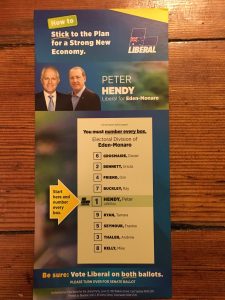
In the case of Eden-Monaro, the Liberal’s Peter Hendy is backing Ursula Bennett from Fred Nile’s Christian Democratic Party.
Number two on Mike Kelly’s Labor ticket is Tamara Ryan from The Greens.
Six days ago I asked both Dr Kelly and Dr Hendy to reflect on their choices and explain whether or not the policies and character of their rivals had anything to do with determining preferences.
Mike Kelly was the only one to respond.
“Labor is preferencing progressive parties above the Liberals,” Dr Kelly says.
“In terms of prefernces locally, we tried to accommodate voters in the most effective way possible to help them fill out the ballot paper,” he says.
That voting advice matters according to Dr Anthony Ashbolt from UoW.
“You just need to be on a booth on election day to know that,” he says.
Dr Ashbolt believes “How to Vote” cards are very important.
“The vast majority of voters follow them,” he says.
“With perhaps a few divergences around the individual personalities of candidates and the voters impression of them.”
So what does having The Greens at number two say about Mike Kelly?
Well his answer suggests he see’s The Greens as progressive and perhaps more closely aligned to his own view of the World rather than the other candidates listed.
The Greens pitch is:
The Australian Greens are a political party based on four key principles: ecological sustainability, grassroots democracy, social justice and peace and non-violence.
We have the courage to put people and our future first. That means that along with meaningful and smart solutions to ensure future generations of Australians have clean air, clean water and clean soil, the Greens are also working in many other areas to champion integrity, decency and fairness.
As well as representing constituents, the Greens speak on behalf of those who wouldn’t otherwise get much of a say inside parliament: children, refugees, students, individuals and families living in poverty and, of course, our natural environment.
Explore more here
Alternatively what does selecting The Christian Democratic Party (CDP) at number two say about Peter Hendy?
Without comment from the Liberal Member for Eden-Monaro, the CDP platform can perhaps be used to shape an answer to that question.
The principles of the Christian Democratic Party:
- To uphold a free and democratic society with freedom of speech, the rule of law and stable constitutional government.
- To support and strengthen the Family unit as the basis of our society and responsible parenting with pro-family, pro-child policies. No to euthanasia.
- To stand for high moral principles in all walks of life and in legislation based on biblical ethics and integrity.
- To foster the principles of government accountability and responsibility, and active citizen participation in a social compact.
- Australian laws must be based on the Judeo-Christian ethic and not on any other religious laws.
- To respect our Australian Flag and the values in our heritage, culture and ideals of equality, democracy, merit and justice.
- To advance the cause of social justice for all: the under-privileged, the unemployed, the handicapped, the elderly, the displaced.
- To pursue the ideal of a sound mind in a sound body by promoting a healthy life-style free from any abuse, drugs or harm.
- To expect a high standard of Education, Social and Medical Care for all Australians, urban or rural.
- To favour a totally integrated environment for sustainability – i.e. social, economic and physical.
- To encourage Australian ownership of enterprise, industry and capital, and promote decentralisation to create more sustainable jobs.
- To promote the pursuit of excellence in all fields of human endeavour.
- To promote World peace and understanding where all can live in peace and harmony and make Australia a shining example.
- CDP candidates are in total agreement with CDP aims and principles; but in every instance, they are free to vote on legislation according to their conscience under God’s guidance.
Explore more here
In a political age where voters seem to suggest the difference between Labor and Liberal is hard to pick, perhaps the choice both parties make for their second preference can be used to find points of difference.
Polices and character aside, electoral mathematics are a factor in determining the preferancing of the major parties.
Dr Ashbolt from UoW suggests that the primary vote for the two major parties will be so low that they will have to do deals with the minor parties and independents in order to get the 50% plus one needed to win each seat in parliament.

Mike Kelly says no deals have been done.
“I say this clearly and unequivocally – Labor is not interested in doing any deals. If the Liberals and the Greens want to do deals, that’s for them. Labor is not doing any deals,” he says.
“If the people of Eden-Monaro want better schools, if they want Medicare to stay in public hands, if they want good jobs, if they want multinationals to pay their fair share, if they want real action on climate change – they should vote Labor.”
But realistically voters expect that deals are being done.
In these days of minority governments it’s how parliaments work.
I am happy for deals to be done.
Please do them and let me know about them.
Give and take is part of getting on in life – working together.
When it comes to political preferences I want my first and second preference to be related in some way, so I am happy for a deal to be done, to see the principals I am voting for rise to the top – together.
“An effective number two can help the number one candidate,” Dr Ashbolt says.
This time next week we’ll know the extent preferences played in shaping the outcome of the 2016 Federal Election.
Dr Ashbolt is tipping a Liberal Turnbul victory nationally, but thinks Eden-Monaro might reject it’s “bell weather” history and return Labor’s Mike Kelly to parliament three years after he lost the job to Peter Hendy.
For the record Peter Hendy has The Greens listed last, Mike Kelly has Peter Hendy at number nine.
So come July 2, in the words of John Farnham, “You’re the voice, try and understand it, make a noise and make it clear.”







